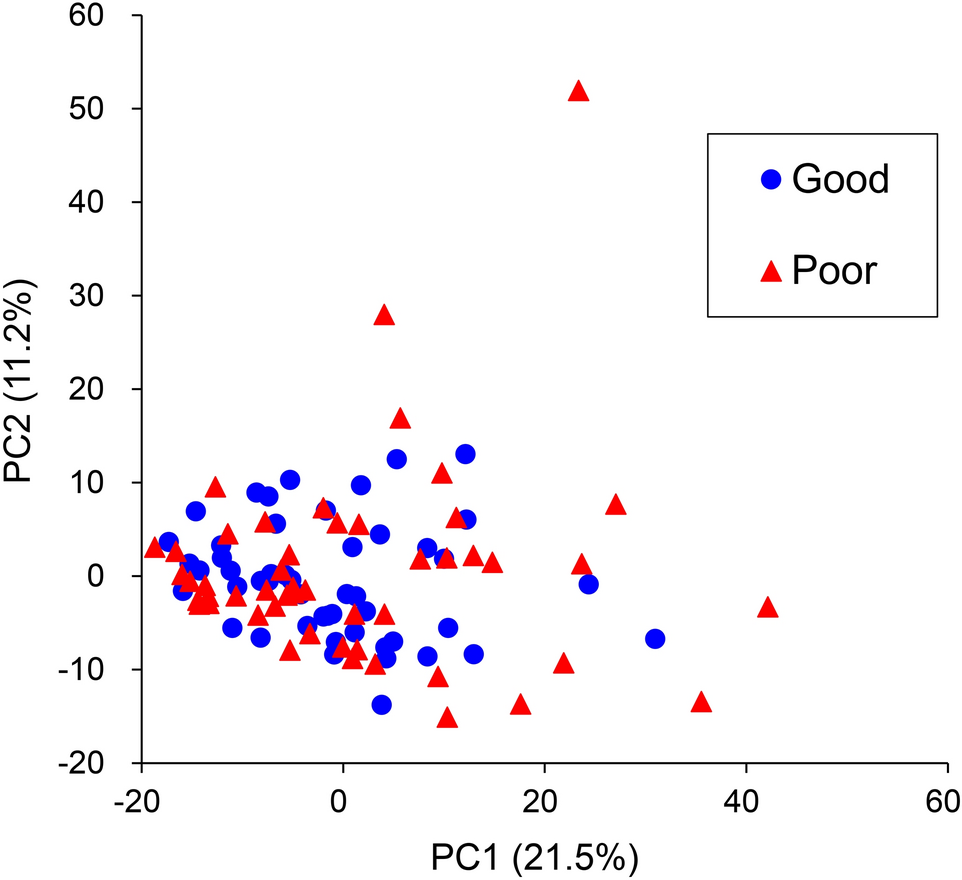2025-04-21 産業技術総合研究所
<関連情報>
- https://www.aist.go.jp/aist_j/press_release/pr2025/pr20250421/pr20250421.html
- https://www.nature.com/articles/s41598-025-95403-1
日本人中年男性における唾液メタボロームプロファイリングにより同定された慢性睡眠障害の非侵襲的バイオマーカーの可能性 Potential non-invasive biomarkers of chronic sleep disorders identified by salivary metabolomic profiling among middle-aged Japanese men
Katsutaka Oishi,Yuta Yoshida,Kosuke Kaida,Kozue Terai,Hiroyuki Yamamoto & Atsushi Toyoda
Scientific Reports Published:21 April 2025
DOI:https://doi.org/10.1038/s41598-025-95403-1

Abstract
Sleep disorders have become a global social problem that increases the risk of developing mental illnesses and metabolic diseases. We aimed to identify biomarkers with which to non-invasively and objectively evaluate chronic sleep disorders. We used capillary electrophoresis–Fourier transform mass spectrometry (CE-FTMS) to analyze metabolomes in saliva collected from 50 persons each with good (≤ 2) and poor (≥ 6) sleep quality scored according to the Japanese version of the Pittsburgh Sleep Quality Index (PSQI-J) self-report questionnaire. The levels of five metabolites including glycerol and hippuric acid and eight including 2-hydroxybutyric acid (2HB), were respectively decreased and increased in participants with poor sleep quality. We established a random forest model consisting of six metabolites, including glycerol and hippuric acid, with a prediction accuracy of 0.866. Correlations between metabolites and sleep satisfaction were assessed using the Oguri-Shirakawa-Azumi sleep inventory, middle-age and aged version (OSA-MA) questionnaire. The results showed that 2’-deoxyguanosine, N1-acetylspermine, and 2,4-dihydroxybenzoic acid correlated positively, whereas glucosamine 6-phosphate and trimethylamine N-oxide correlated negatively with sleep quality. These findings suggested that changes in salivary metabolites reflect pathophysiological mechanisms of chronic sleep disorders, and that saliva samples could serve as non-invasive and objective diagnostic targets for predicting habitual sleep quality.

